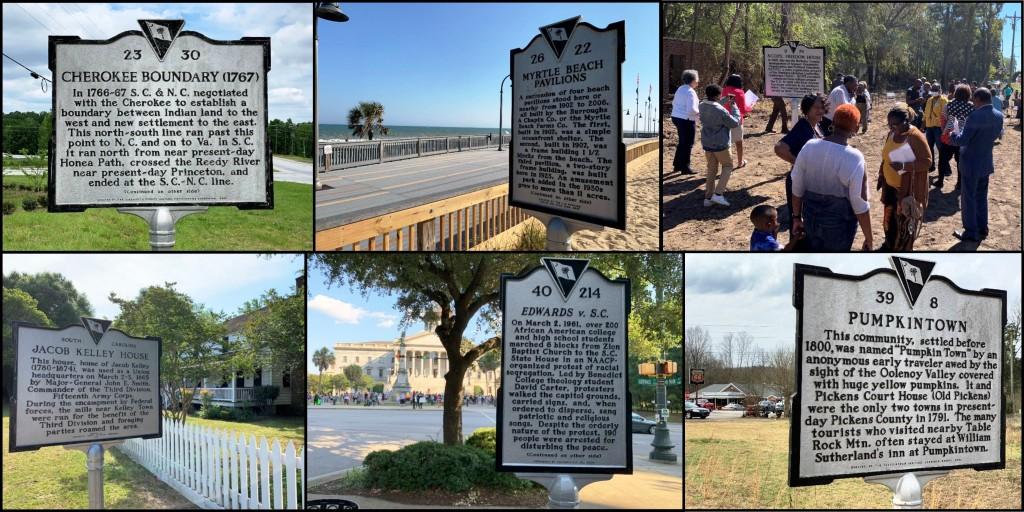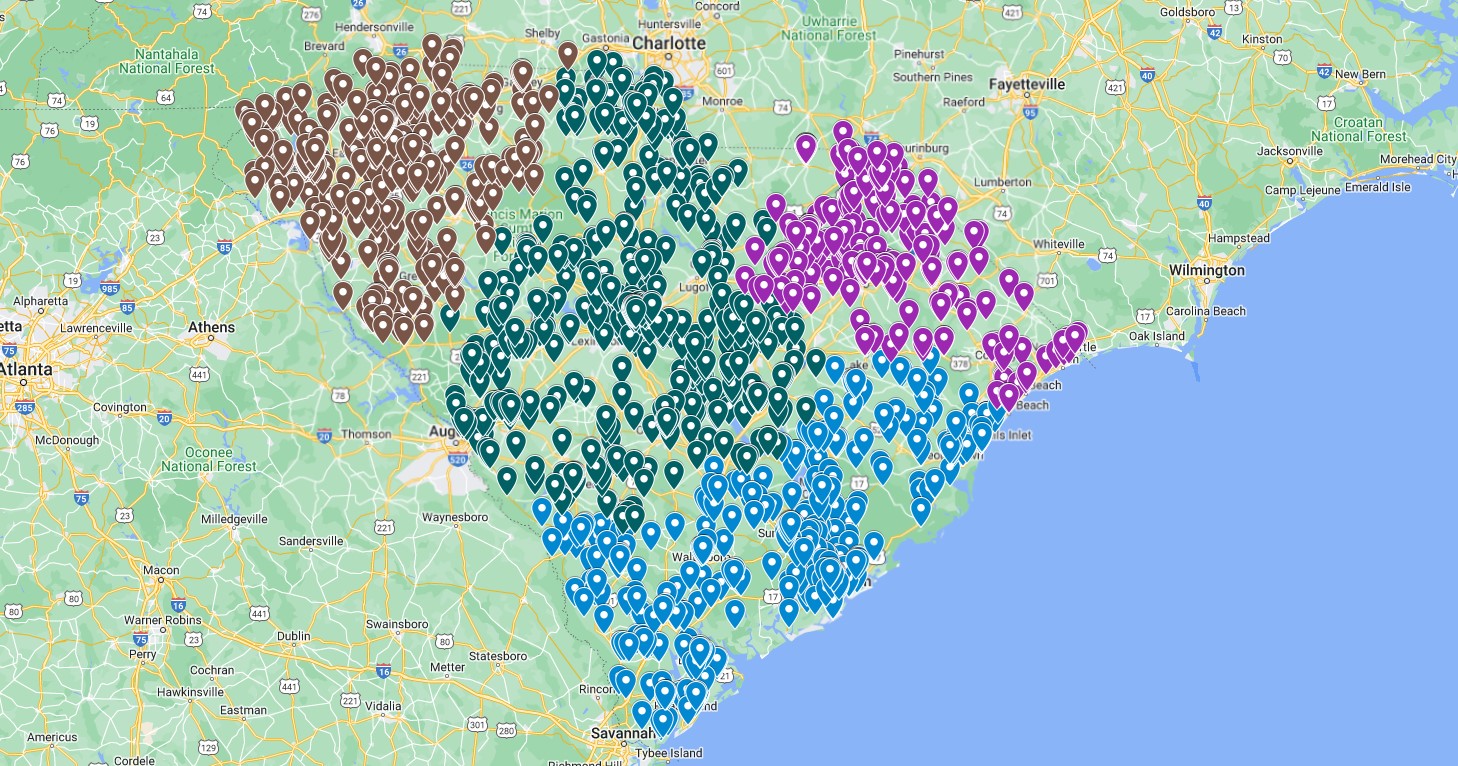South Carolina Historical Marker Program

**Due to high volume of demand, the South Carolina Historical Marker Program is currently experiencing longer than usual wait times for processing new applications. Potential applicants should expect delivery of new markers to take up to 18 months from the time SCDAH receives a complete application.**
Administered by the South Carolina State Historic Preservation Office (SHPO), South Carolina’s official state historical marker program was established in 1936 and is one of the oldest programs of its type in the country. Since the program’s creation, more than 2,000 historical markers have been approved by the South Carolina Department of Archives and History (SCDAH) and erected all across the state.
Throughout its history, the South Carolina Historical Marker Program has been state-managed but locally driven. SCDAH reviews and approves all new state historical markers, however the agency has never received regular state funding for new markers. Rather, it depends on the citizens of South Carolina to propose, document, fund, and maintain state historical markers.
For more detailed information about the program criteria, guidelines, sponsorship, and application process, please refer to the historical marker application form.
MISSION
The purpose of the South Carolina Historical Marker Program is to educate the public about the Palmetto State’s past using the lens of place. Marker inscriptions discuss a variety of subjects, however all state markers must ultimately illuminate the history of the place where that marker is located.
SPONSORSHIP
All South Carolina Historical Markers must be sponsored by an organization. Individual people may not serve as marker sponsors, however they are welcome to ask an organization to sponsor a marker on their behalf.
APPLICATION MATERIALS
Marker applications must be submitted in hardcopy and include the following:
- Completed South Carolina Historical Marker Application Form
- 1-2 paragraph summary of the property’s history - This is not a rough draft of the marker inscription, but it will be used by the program coordinator to draft a proposed inscription for the sponsor’s review.
- Copies of source materials that document the information in the summary.
- Application fee ($250.00) - Please make checks payable to the South Carolina Department of Archives and History. If a proposed marker is determined to be ineligible for the program, this fee will be refunded.
Using these materials, the program coordinator will draft a marker text that complies with the program’s criteria for content, spacing, and style. This will be sent to the sponsor for comment and further revised as necessary until a final text is ready for the review of the Director of the South Carolina Department of Archives and History. A marker is not officially approved until the Director of the Department of Archives and History has signed off on its inscription. Once the marker is approved, sponsors order it directly from the manufacturer.
TIMELINE
Applications for new state historical markers are accepted on a rolling basis. The amount of time required to process new applications depends on a number of factors, however sponsors should be prepared for it to take as long as 18 months to receive their marker from the time SCDAH receives a complete application.
MARKER PRICES (Effective through December 31, 2026)
City-Size:
same text both sides with 7' post $2,540.00
different text each side with 7' post $2,805.00
Country-Size:
same text both sides with 7' post $2,705.00
different text each side with 7' post $2,930.00
After the final marker text is approved by the Director of the South Carolina Department of Archives and History, the applicant will send a separate check for the marker to:
Sewah Studios
P.O. Box 298
Marietta, Ohio 45750
(740) 373-2087
e-mail: info@sewahstudios.com
The coordinator of the South Carolina Historical Marker Program will advise applicants on the procedures for ordering historical markers once the final text is approved.
DEDICATION CEREMONIES
Many sponsors choose to unveil or dedicate their markers with ceremonies that range from the simple to the elaborate. The marker program coordinator can provide general guidance on how to plan such events, and representatives from SCDAH may attend ceremonies as scheduling permits.
MAINTENANCE AND REPLACEMENT
There are no state funds for maintenance or replacement of historical markers. Sponsoring organizations are responsible for maintaining markers as needed and for repairing or replacing badly damaged markers. Please see this brochure for guidance on how to conduct basic maintenance on markers. If you notice a marker has been severely damaged or gone missing, please notify the marker program coordinator.
PROGRAM CONTACT
Edwin C. Breeden, Ph.D.
South Carolina Historical Marker Program
South Carolina Department of Archives and History
8301 Parklane Road
Columbia, SC 29223
Phone: 803-896-6182
APPLICATION AND FURTHER INFORMATION
SC Historical Marker Prices & Specifications (PDF)
SCDOT Marker Policy (PDF)
SC Historical Marker Application (PDF)
Cleaning, Repairing, and Repainting SC Historical Markers brochure (PDF)
Interactive Map of All Approved South Carolina Historical Markers – Includes subject-based filters for markers that highlight associations with African Americans, Native Americans, Women, the American Revolution, and the Civil War. Recently approved markers may be shown on the map but not yet be erected.
Revised January 2026
